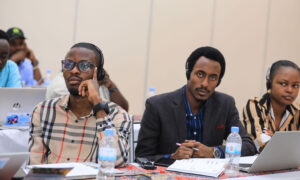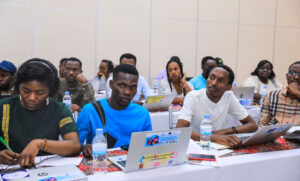Great Lakes: Mentoring young innovators as catalysts for change
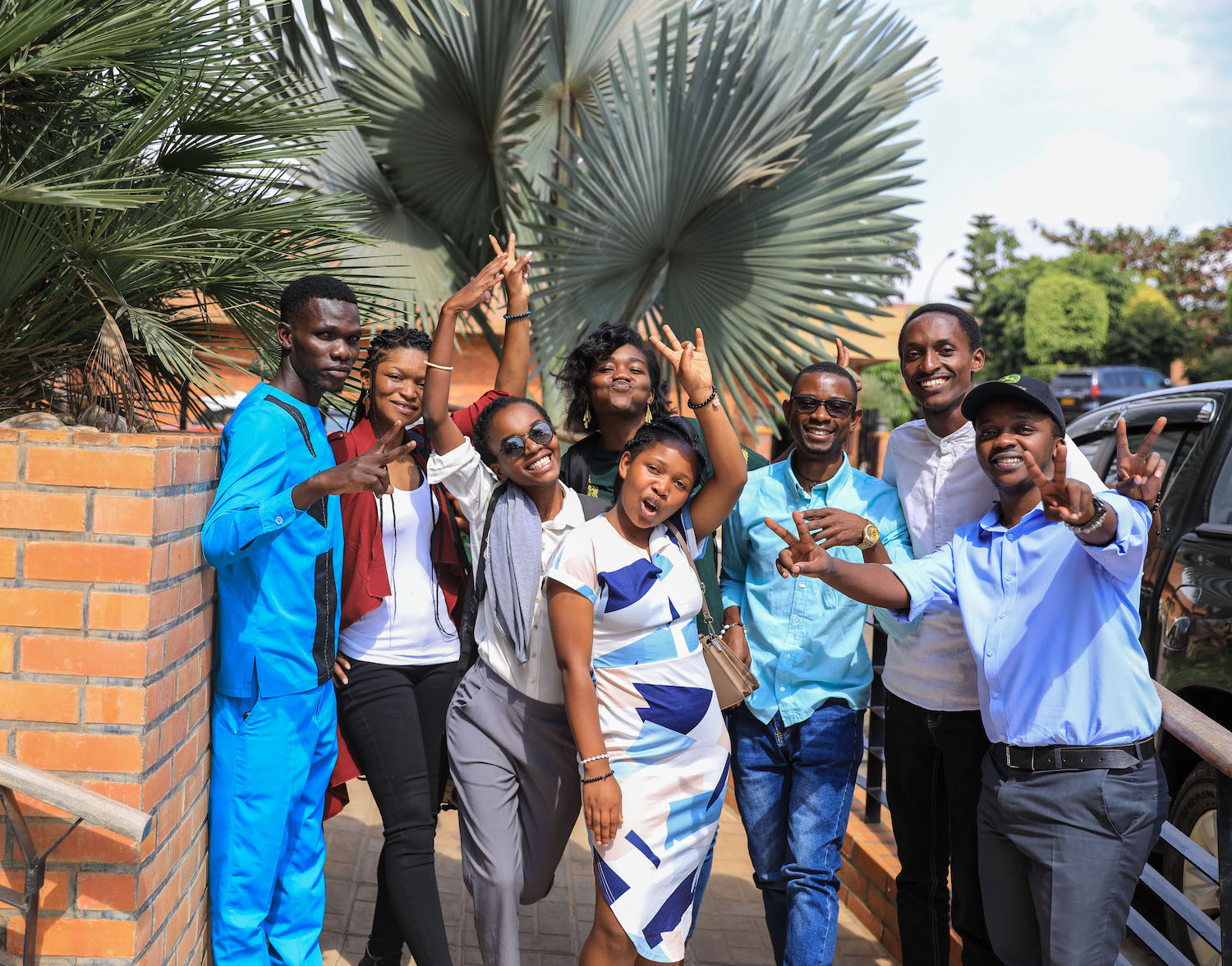
Africa's Great Lakes region has a complex history marked by periods of conflict, political instability and social challenges. In this context, young people have untapped potential as catalysts for positive change. Their ability to promote peace within the community rests not only on their unique qualities, but also on their determination to play an active part in building a better future. Recognizing, nurturing and supporting this potential is essential to building lasting peace and stability in the region.
Interpeace, in partnership with the Refugee Law Project, Centre for Conflict Alert and Prevention (CENAP), Never Again Rwanda (NAR), Action pour la Paix et la Concorde (APC), and the Pole Institute, trains young innovators aged 18 to 30 to take part in governance, peacebuilding, and development processes in Uganda, Burundi, Rwanda, and the Democratic Republic of Congo (DRC). The capacity-building and mentoring programme consists of three face-to-face sessions and two remote sessions. The young innovators, both men and women, are selected on their experience and commitment to launching positive peacebuilding initiatives in their communities and the wider region. The programme provides them with the tools and guidance to channel their creativity and translate innovative ideas into actionable projects.
In early August, young innovators from the Great Lakes region were in Kigali, Rwanda for a face-to-face mentorship training session. The innovators presented ideas to a diverse group of stakeholders, including representatives from the partnering organisations, seeking grants to support their advocacy and social cohesion projects. This third face-to-face session also served as a platform for imparting vital skills such as trauma healing, community engagement, gender and conflict sensitivity in project management, and critical thinking. These skills will help them better implement and scale up their initiatives.
In the Great Lakes region, mental health problems are on the increase among young people. They are further exacerbated by the distinct experiences and circumstances resulting from past conflicts and current political turmoil. Recognising this pressing issue, the youth mentoring programme has incorporated a specialised session on mental health. Ndahiro Derrick Alte, a young innovator from Rwanda, mentored by NAR, acknowledged the impact the training had on him, “The third face-to-face training in Rwanda was a transformative experience that provided me with an opportunity to dig deeper into the complicated world of trauma, its causes, and the effect it has on individuals and communities. I have also been able to acquire knowledge and tools on how best to facilitate healing, both for myself and for others who are on the road to mental health recovery.”
The mental health session not only broadened the young people’s comprehension of trauma but also equipped them with practical tools and techniques to offer compassionate support to those in need of healing.
“I really enjoyed the training in Kigali! I learned that stress is different from trauma! And that stress can give us a boost, whereas trauma can hinder our personal development!
Therapy is the best way of dealing with trauma and enabling people to develop despite their traumatic experiences,” appreciated Judith Balerha, a young innovator from DRC, mentored by the Pole Institute.
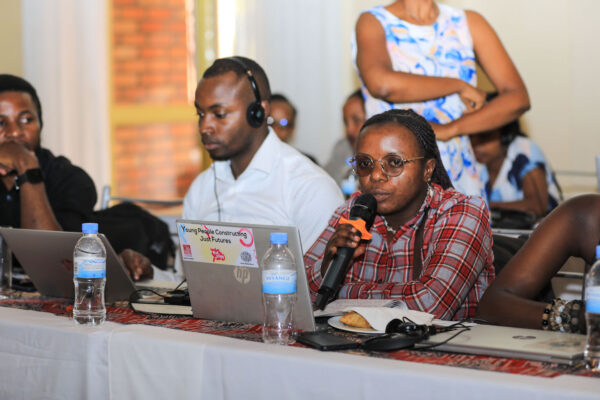
 The journey began with the first "face-to-face" session, where these people come together to acquire the essential general and technical skills needed to implement youth-led peace initiatives. The second "face-to-face" session proves to be a crucial point in the process. It involves fine-tuning the development of the initiative and drawing up strategic plans for the pilot projects. The second distance learning session marks an important step in this process. The partner organisations meticulously advise, support and refine the initiatives until they are ready for implementation. Each mentoring session builds on the progress made in previous sessions. The programme culminates in the third and final face-to-face training session, which culminates in the validation and funding of the young innovators' projects in the Great Lakes region.
The journey began with the first "face-to-face" session, where these people come together to acquire the essential general and technical skills needed to implement youth-led peace initiatives. The second "face-to-face" session proves to be a crucial point in the process. It involves fine-tuning the development of the initiative and drawing up strategic plans for the pilot projects. The second distance learning session marks an important step in this process. The partner organisations meticulously advise, support and refine the initiatives until they are ready for implementation. Each mentoring session builds on the progress made in previous sessions. The programme culminates in the third and final face-to-face training session, which culminates in the validation and funding of the young innovators' projects in the Great Lakes region.
Commenting on the importance of the scheme, Interpeace programme manager Salvadore Safari Shamaba stresses that the face-to-face training has enabled the young people to discuss the content of their initiatives and capitalise on each other's experiences to enrich them before they are validated.
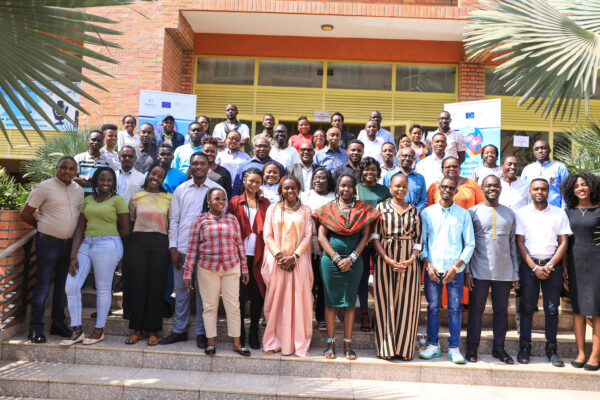
 "These initiatives will enable the young innovators involved in the regional programme to mobilise the region's youth and make them catalysts for lasting peace in the Great Lakes region. Thanks to this funding, these young innovators will implement activities aimed at strengthening social cohesion and capacities. They will present the results of these activities to the region's various technical and financial partners, encouraging them to promote youth-led initiatives in the Great Lakes region," said Mr Salvadore.
"These initiatives will enable the young innovators involved in the regional programme to mobilise the region's youth and make them catalysts for lasting peace in the Great Lakes region. Thanks to this funding, these young innovators will implement activities aimed at strengthening social cohesion and capacities. They will present the results of these activities to the region's various technical and financial partners, encouraging them to promote youth-led initiatives in the Great Lakes region," said Mr Salvadore.
The Great Lakes programme, funded by the European Union and the Swiss Development Cooperation, is a testament to the resilience, innovation and unwavering dedication of young people in the four countries to successfully transform their communities. It is a story of collaboration, a journey of innovation and a vision realized through the spirit of youth empowerment.
"We were free to present our initiatives and defend them in front of our mentors. After several training sessions, we can now put what we've learned into practice. Our aim is to promote social cohesion in the Great Lakes region by bringing young people together around initiatives," said Françoise Mwiriri, a young innovator from the DRC sponsored by APC.

